On 17 July 2023, the No Accommodation Network (NACCOM) published a report on the experiences of people who have received a negative asylum decision.
The new report, titled “Refused? Experiences following a negative asylum decision”, draws on the lived experiences of individuals who have first-hand experience of destitution and immigration control. NACCOM aims to provide an insight into the personal impacts of ineffective asylum-decision making, and the systemic and practical barriers that stop people from resolving their immigration status after being refused.
This blog outlines the key points and findings in the NACCOM report, and highlights where much of the information that people should have had access to from the Home Office, is available in our Toolkit.
Key findings
Understanding the asylum process
The report found that information about the asylum system and the legal process was difficult to access. For this reason, people were unaware of the actions they could take following a refusal, so they were pushed into homelessness or destitution. Testimony from a person in the system captures this: “I never really knew what is asylum [sic], I didn’t know anything about it.”
The Toolkit exists for this purpose – to equip people with knowledge about the asylum process, so they can understand and make informed decisions on their case. We want to ensure that people are able to access this vital knowledge, so we will work harder to go upstream to meet people earlier on in their learning process, to give them this information.
To find out about what steps you can take after a negative Home Office asylum decision, read our Decisions Toolkit page here
Impacts of receiving a refusal decision
Homelessness
Almost all of the participants in NACCOM’s report described facing homelessness after receiving a refusal from the Home Office. Participants did not understand that their asylum support could be stopped at several points in the process, so a negative decision heightened the shock of being made homeless. Following a refusal, many people seeking asylum feel abandoned as they are forced to leave their accommodation without support or guidance about where to go for help. One participant described this lack of support:
“Once they reject you they don’t care, they don’t bother how you live, where you eat, no support.”
To find out about what asylum support is available to you after an asylum refusal, read our Asylum Support Toolkit page here.
Mental and physical health
Participants reported that homelessness and having no recourse to public funds (NPRF) caused them to experience worsening physical and mental health. Lack of sleep, cold weather, not eating enough while homeless, and experiencing stress has caused people who received a negative decision to experience a deterioration in their physical health. The report finds that physical problems developed after a refusal for many people, including issues with blood pressure, heart and lung conditions. Participants also reported a sense of shame about being homeless and not being able to work. It is important to remember that people seeking asylum have often fled traumatic experiences, so refusal decisions can bring back traumatic memories, as one participant described it: “It was like I am in Iran again… I just felt I am being tortured in this country as well.”
Locked out of legal support and legal aid
Following a refusal, many participants in the NACCOM report found themselves unable to access legal support. Those who received a negative decision on their initial claim or appeal were dropped by their legal aid solicitors.
This is the exact gap we are trying to fill at Right to Remain. NACCOM’s findings have highlighted to us that the legal aid crisis is ongoing, and people are more likely to feel abandoned when they feel they have no information about the asylum process. We want to ensure that people in the system are able to be supported by non-lawyers, so we encourage people working with asylum seekers to seek out the knowledge. Even without support, it is possible to successfully represent yourself, even after a refusal, without a lawyer present provided you have the correct information.
Legal support – providing legal information about the asylum and immigration systems
Legal advice – advice on asylum or immigration cases by people accredited with OISC, or another regulatory body.
What’s next?
Research by NACCOM shows that a lack of knowledge about the asylum system is a fundamental barrier to a fair process, as people are unable to make informed decisions. Some key recommendations suggested by NACCOM for the Government, policy-makers and the Home Office are:
- Introduce a process to help people understand the asylum system at the point which they claim asylum
- Extend the period following an asylum decision before asylum support is stopped to 56 days, instead of the current 21 to 28 day period
- Ensure that all people seeking asylum in the UK obtain good quality legal help and representation and can uphold their rights and access justice
Right to Remain thanks NACCOM for providing vital insight into the real-life impacts of asylum decision making. The asylum system is cruel and hostile towards people seeking safety, and we are appalled at the continuous abandonment of people stuck in the system. Once again, we stress the importance of legal support – when the system is this difficult to understand, we urge those working with people seeking asylum to learn more about the system. To add to NACCOM’s already valuable recommendations, we would suggest that people use and share the Right to Remain Toolkit widely, so we all stay informed and feel supported.




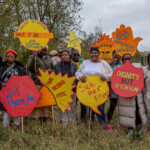
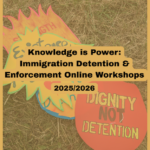


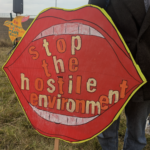



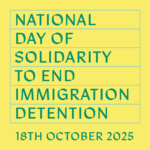
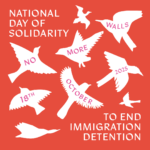
Discussion: